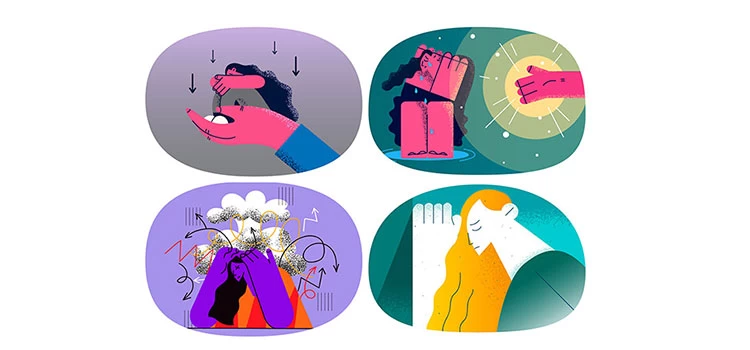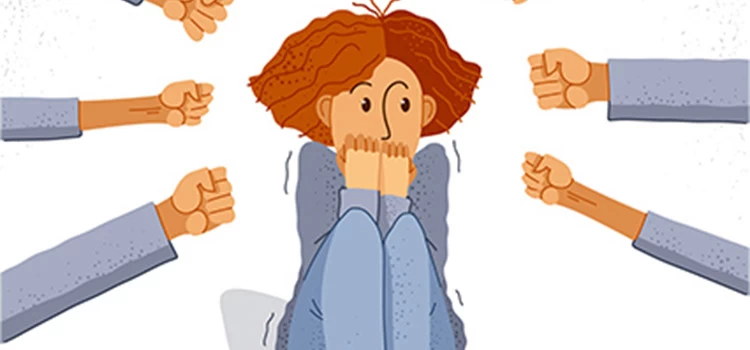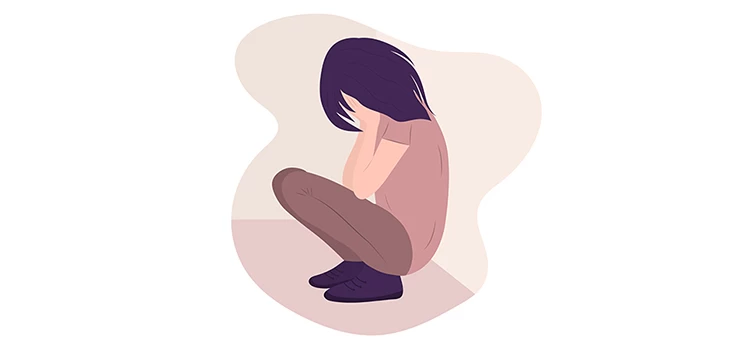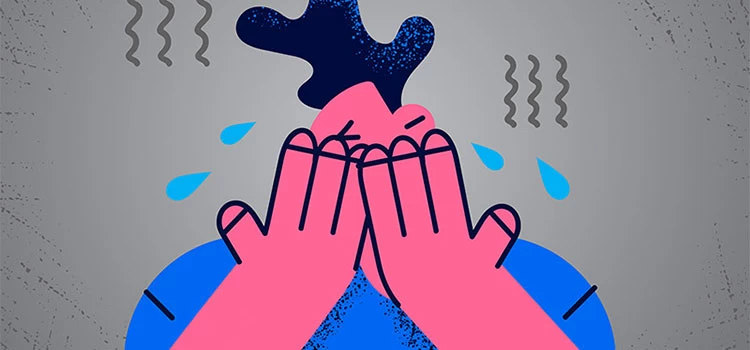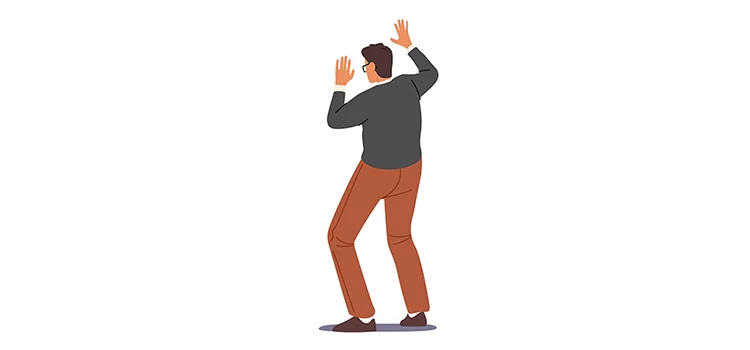Counselling & Psychology
Psychological Bullying by Neighbors – How to Defense and STOP Them
On any level, psychological bullying has the potential to scar a person for the rest of their life. This is especially true in the case of psychological bullying by neighbours. Home is a place that is synonymous with security and tranquillity, a place where you feel comfortable. You can have all these severely disrupted and more if you have a neighbour who is being a jerk.
However, there are ways to get yourself out of this. First, you just have to know how to stand your ground and defend yourself. A little bit of knowledge can make a big positive impact on your life.
One more thing, a big portion of the blog will apply to any case of bullying by someone, be it your neighbour or your colleague. So give it a good read even if you don’t have a nasty neighbour because some of these tips may come in handy regardless.
Before we dive deeper into our topic at hand, let’s talk definitions for the uninitiated, just in case.
 Do you want to enrol in Anti Harassment and Bullying Course Online?
Do you want to enrol in Anti Harassment and Bullying Course Online?
Table of Content
What is psychological bullying?
Bullying
Is bullying and psychological bullying the same thing? If you search “Bullying meaning” on Google, this will show up on top:
“seek to harm, intimidate, or coerce (someone perceived as vulnerable).”
That’s Google Dictionary. The definition that they have given is spot on. Bullying literally means “seeking to harm, intimidate..” and so on. So the keyword here is ‘seek’. The person bullying you doesn’t have to lay a single finger on you or do it multiple times and yet may have as much psychological effect as a bus hitting you every time you get bullied.
You may think, “as a bus hitting me”?
Yes, you read that right, as a bus hitting you. Not everyone’s body works the same. It’s the same for our mind. Not everybody takes negative emotions equally. A person may faint on the slightest sight of blood, while you may just be a little disturbed, and that’s totally normal.
In the case of bullying, a severe case may end up scaring someone so bad, that they start developing serious physical and psychological illnesses.
That’s because emotional torment has a massive impact on our bodies. It’s a scientifically proven fact that depression, which can affect you if you’re repeatedly exposed to bullying, does a serious number of damages to our bodies. Here are a few quick examples:
- 1. Feelings of sadness or emptiness
- 2. Insomnia
- 3. Trouble with memory or decisions
- 4. Feelings of clinginess
- 5. Risk of heart attack
- 6. Abnormal weight fluctuations
- 7. Constricted blood vessels
- 8. Increased pain sensitivity
- 9. Fatigue
- 10. Lower sex drive
- 11. Weekend immune system
These are just a few of the surface level examples. These problems can run even deeper. Interestingly, it has been observed that bullies themselves suffer from some of the problems described above. In addition, emotional problems and personality disorders are quite common in them.
You may already be wondering, why spend so many words on a simple definition? As you can see, it’s not simple. We need to address it because, in the past, bullying was never seen as that big of a case. So many people have been hurt, many lives lost because we never tried to understand the impact of bullying.
If you have never been on the receiving end of bullying, just ask someone who has. They will tell you how miserable can someone’s life become even with seemingly harmless acts of persistent bullying. We are only starting to see how it is a big issue. Let’s start right from the definition.
So, once again, what is psychological bullying?
Psychological bullying
To put it simply: when a person does something with the intent to damage you emotionally or to make you suffer, that’s psychological bullying.
But the question remains, can bullying be specified, much like a scientific theory? That’s a no. This is why we have been so slow to respond to the issue of bullying so far. A lot depends on the context. The context can basically give us a rough idea of whether a person is being a bully or just being playful.
Wrong accusations can be a tool to flag someone as a bully when the victim themselves is the real bully. Suppose someone personally attacks you. Only the context can tell if it qualifies as bullying. In fact, psychological bullying can be divided into several types.
Types of psychological bullying
It is very common for people to encounter bullies at work, at home, in schools, in governments, in religious organisations, on the internet, or even in their own social circles. Bullies often change their mode of aggression based on where they are situated.
However, some common types are:
1. Verbal bullies
2. Physical bullies
3. Serial bullies
4. Gang bullies
5. Cyber bullies
6. Subordinate bullies
7. Unwitting bullies
8. Work bullies
9. Sadistic bullies
10. Psychotic and sociopathic bullies.
All these types are pretty much self-explanatory. Physical bullies may sound like they don’t belong to the “psychological bullying” category, but they do. Physical bullying takes the same negative toll on your mental health, affecting your physical and mental well-being.
Some bullies don’t bully through physical assaults as that may get them in trouble, legally speaking. But, they do resort to the sort of physical harm that cannot be defined as physical harm but are intended to mentally scar you anyway.
Not every bully is a serial bully either. A serial bully is the type of person who lives their life as if their very existence is to be “a jerk”. Sometimes even the best of us loses it and we act very badly towards others. However, that doesn’t make our behaviour acceptable either.
If you wish to help some facing psychological bullying and make a career out of it, you can do the same by becoming a counselling psychologist.
The same goes for the unwitting bully. A person may not be aware of the fact that they are being a bully all the time. But more often than not, they do know they are being a bad person yet ignore the moral and ethical considerations here.
They may think that it’s a necessary evil to maintain discipline for example or to force someone to comply. However, what we also have to understand is that this kind of behaviour is called ‘evil’ for a reason.
Cyber-bullying is a new emerging variant of bullying behaviour. They may do even more damage since they can keep their identity hidden and repeatedly harass someone on the internet.
Psychological bullying by neighbours
If you see that your neighbour is subjecting to any form of unwanted behaviour, that is bullying. Something like harmless teasing isn’t unwanted behaviour as most often we use them to bond with people close to us. However, constant harassment, physical or verbal abuse or even name-calling or teasing can be bullying if they upset you or cause you any distress.
Bullying may even take the form where the bully doesn’t involve you physically at all. Instead, they choose to spread rumours about you. Serious cases may even involve threatening or anti-social behaviour. These kinds of mental abuse by a neighbour may force you to take legal actions.
Sometimes, your neighbourhood bullies are subtle (like neighbours playing loud music during the day). Their actions can become so regular (serial bullies) that you get used to their behaviour. However, this kind of behaviour is unacceptable nonetheless.
“Adult bullies tend to be opinionated, judgmental, and coercive,” Katherine Krefft, PhD, a practising psychologist in Buzzards Bay, Mass
A bully may use several methods of bullying to distress you. They may:
- Abuse a position of power.
- Repeatedly give undeserved criticism.
- Use verbal or physical abuse.
- Have excessive and unrealistic expectations.
- Repeat insults or threats.
- Abuse the rights and dignity of others.
If you don’t do anything about the abusive behaviour of your neighbour, but you’re still very much against the type of behaviour they’re displaying, it will affect you mentally- sooner or later.
This blog might interest you; how to become a phycology teacher let’s jump into the blog.
How to deal with an abusive neighbour?
First of all, take a good look at yourself and ensure that you’re not the bully. The classic excuse of a bully is that they disapprove of their neighbour, and so they chose to be jerks.
If you’re in the clear, proceed to take actions that will record the behaviour of your neighbour. First of all, let your friends and family know what you are facing. Then take further actions, like:
Document everything
Start documenting all interactions as soon as you realise you’re dealing with bully neighbours.
How to document neighbour harassment?
If you ever need to prove that a neighbour is being a bully in a court, you’ll need proof. This is why you should know how to document neighbour harassment. Take photos, videos, audio records- anything that proves that your neighbour is harassing you.
But be careful about it. For example, New York doesn’t limit its citizens to document neighbours with photos or videos as long as it is not intrusive. However, it’s illegal in California.
But almost every country, including the UK, won’t disallow you to document events where you are in a threat as a form of evidence. So ensure that you’re documenting an abusive neighbour and not someone who is harmless at the moment.
If you ever call the police on them, properly document the incident and keep a copy of the police report. If the situation escalates to criminal charges or any type of litigation, this will be useful to you.
Relax
Bullies can’t harm you in the least if you don’t let them. Just be straightforward and let the bully know that you disapprove of their behaviour. If they still don’t listen to you, tell them that you will involve the law here if the situation bothers you anymore. Most of the time, this is enough to make most bullies stop their abusive behaviour.
However, if they still don’t stop, do involve the law. Don’t let bullies take charge of the situation. If they ever smell that they are the dominant one, in this case, they may become even more abusive.
So, it’s not like you can’t control the situation. You’re the one in the driving seat. As long as you don’t lend that seat to the bully, you’ll never face a situation where you can’t relax anymore.
Try speaking to them or becoming friends
You may be surprised to know that most of the time, your neighbour may not be a bully at all. It may all be a misunderstanding between you. Try speaking to them. Become friends if they let you. You may even discover that they are, in fact, good people and are ashamed of their behaviour.
Sometimes, even bullies may give up their abusive behaviour and become good friends with you if you apply the right technique here. Several studies have found that asking for a favour may actually help build relationships. Here’s an article from Forbes regarding the topic. The basic gist of it is that-
“Asking for Help Deepens Relationships”

Diploma in Psychotherapy and Counselling Course Online at QLS Level 4
- Accredited Courses
- Tutor Support Included
- 3 Installment Plan at checkout
- 14 Days Money Back Guarantee
Let the landlord know about it
Letting the bully’s landlord know about their behaviour usually works like a charm. The landlord has their reasons to keep the neighbourhood friendly so that no unwanted attention, like the police, stains the neighbourhood.
However, despite trying everything else, you may have to resort to filing a harassment complaint against your neighbour.
How to file a harassment complaint against a neighbour?
If you’re being harassed even after trying every other option to let them know that their behaviour is disturbing you, things may turn dangerous real soon. Letting the local authority know about the incident is the right course of action for you in this case.
Sometimes, harassment takes place because of your-
- Disability
- Race
- Religion
- Transgender identity
- Sexual orientation
If you are thus discriminated against, you can report the harassment to the police as a hate incident or crime. Go to UK Police’s website and find the details of your local police station.
What can the police do about bullying?
So, what happens when you file a police report for harassment is that they’ll investigate the incident. But remember, police don’t take sides. They, in fact, can’t. They can only take action if your neighbour breaks the law, like-
- Turning violent
- Damaging your property
- Threatening you in a way that makes you feel unsafe
However, you can also file a complaint in the criminal courts or the civil courts.
Harassing Neighbour Laws
If you’re wondering, the UK does have legislation that provides protection for its citizens in the form of the Harassment Act 1997.
Further, depending on the situation, you can subject your neighbour to prosecution in the criminal courts if they harass you. It also means you can act against the person in the civil courts.
On-Demand Accredited Courses
Learn new skills from industry experts. Select from more than 2,000 online courses, find the ideal course for you.
When is something harassment under the Act?
If your neighbour’s behaviour harassment is causing you distress or alarm, then you can seek protection under the Act. It says you must have experienced at least two incidents by the same person or group of people for it to be harassment.
Once you file a complaint, the court will decide if such behaviour amounts to harassment and what behaviours qualify as bullying.
Criminal vs Civil court
If your neighbour is not found of any criminal offence, you can still take civil court action. You need to make your claim within six years of the harassment incident.
Civil court actions regarding harassment
After your complaint, the court can make an order or injunction that the person harassing you must stop their behaviour. You have the right to be left alone, even if your neighbour’s behaviour may seem harmless.
Further, if they don’t stop harassing you after the court has made an injunction against them, it falls under the category of a criminal offence. As such, they become viable for prosecution in criminal courts.
You can also ask the court for compensation if you have suffered financial or emotional loss because of the incident.
However, it would be best if you consider taking advice from an experienced adviser. For example, at a Citizens Advice local office before taking court action.
Conclusions
It’s not wrong to take action against psychological bullying by neighbours. You never know what effects of bullying will take hold of your psychology.
So you have every right to defend yourself. By being a conscious citizen, you’re not only protecting yourself but others as well.
Because your actions will send a strong message to bullies around you to put a stop to their behaviour, be it you or anybody else, once they see that, they may get into serious trouble for their behaviour.
Refer this blog to anyone else who may be in a similar situation so they know how to defend themselves against unwanted situations.
Frequently Asked Questions [FAQ]
Who started the anti-bullying?
Anti-Bullying Day (or Pink Shirt Day) is an annual event that originated with the idea of standing against bullies. It was originally organised in 2007 in Canada by two twelfth-grade students David Shepherd and Travis Price.
What makes a good anti-bullying policy?
There are many things that can be cited as a good anti-bullying policy. But the most important of them is “a clear explanation of what is and what is not bullying.”
How do you stop a Neighbour harassing you?
- Start documenting all interactions as soon as you realise you’re dealing with bully neighbours.
- Be straightforward and let the bully know that you disapprove of their behaviour.
- Try speaking to them or becoming friends
- File a harassment complaint against a neighbour
What is psychological harassment?
Psychological harassment is a vexatious activity that includes persistently nasty and unwanted words, actions, or unpleasant, upsetting, irritating, humiliating, or insulting behaviours. When harassment or bullying occurs, the atmosphere becomes hostile and unwelcoming and attempts to minimise or humiliate the victim.
Harassment violates fundamental human rights to dignity, development, and safety and can be physically, emotionally, or sexually destructive.
How to Take action under the Protection from Harassment Act?
You can seek protection under the Act if your neighbour’s harassment is upsetting you or making you feel uneasy. According to the law, harassment requires that a person or group of persons harass you on at least two separate occasions.
Furthermore, if your neighbour harasses you, you may be able to have them prosecuted in a criminal court, depending on the circumstances. Additionally, it implies that you may file a civil lawsuit against the defendant.
How to capture your neighbour’s behaviour on your land?
“Take photos, videos, audio records- anything that proves that your neighbour is harassing you.
But be careful about it. An example: New York doesn’t limit its citizens to document neighbours with photos or videos as long it is not intrusive. However, it’s illegal in California.
But almost every country, including the UK, won’t disallow you to document events where you are in a threat as a form of evidence. So ensure that you’re documenting an abusive neighbour and not someone who is harmless at the moment.”
When is something harassment under the act?
You can seek protection under the Act if your neighbour’s harassment is upsetting you or making you feel uneasy. According to the law, harassment requires that a person or group of persons harass you on at least two separate occasions.
When can you take civil court action about harassment?
If someone has harassed you repeatedly, including through stalking, you may be able to sue them in civil court. You were upset or concerned by the pestering.
Is it illegal to play loud music after 11PM in the UK?
The interval between 11 p.m. and 7 a.m. is defined as “night hours” by the Noise Act of 1996 (UK). It can be seen as mental harassment by the neighbour. As a result, any excessive and excessively loud noises constitute noise pollution and anti-social behaviour and are thus considered criminal.
What to Read Next:
- How to Become a Physiotherapist – Step by Step Guide
- What’s the Difference Between Counselling vs Psychotherapy
- Trainee Psychological Wellbeing Practitioner Interview Questions and Answers
- How to Become a Child Psychologist UK
- What is not a major field in psychology?



 Do you want to enrol in Anti Harassment and Bullying Course Online?
Do you want to enrol in Anti Harassment and Bullying Course Online?